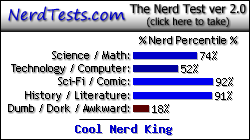Ever since I posted my list of book recommendations yesterday I've been thinking of books I should have included.
Citzen Cohn: The Life and Times of Roy Cohn, by Nicholas von Hoffman --- Man is this a good read. Nick von Hoffman was a hero of mine when I was a kiddy watching him make mincemeat of James J. Kilpatrick every week on "60 Minutes" in its Point/Counterpoint feature. Pre-Shana Alexander.
Roy Cohn was, for me, a living embodiment of the evil in this world.
Von Hoffman dishes, and digs deep. It's hard to understand America, from the McCarthy era to the Reagan era, without understanding a bit of how Roy Cohn became, for a time, one of its most powerful figures. Von Hoffman's final picture isn't pretty, but it's nuanced, complex and, I suspect, true to its subject. It's also kinder than one might expect.
The Sixties: Years of Hope, Days of Rage, by Todd Gitlin --- Gitlin has written a "biography" of his own times. He was a participant in the rise the New Left. He's now a professor. Both attributes serve him well in this detailed socio-political history book. He attains detachment in most cases, provides first-hand witness in others, and manages not to put you to sleep in a book with 22 pages of endnotes.
Inside: A Public and Private Life, by Joseph Califano --- Not only has Califano been an eyewitness and actor in history, he's led a varied and interesting life. The politics fascinate a wonk like me, but the intertwined story of his personal life, including his understanding of and wrestling with his Catholic faith, were an unexpected education.
Lost Prophet: The Life and Times of Bayard Rustin, by John D'Emilio --- The fact that you do not recognize Rustin's name is the tragedy of his life. Martin Luther King's 1963 "I Have a Dream" speech at the Lincoln Memorial would never have happened if Bayard Rustin hadn't organized the March on Washington.
He was the foremost American teacher and practitioner of non-violent resistance. That's not me talking, that was Gandhi's assessment. Yes, that Gandhi.
His homosexuality condemned him to the sidelines far more than his imprisonment as a draft resister during World War II ever did.
And his intellectual honesty and vision meant he was practically absent from the Viet Nam war resistance organized by the foolish, arrogant, jejune young whipper-snappers of the "New Left." These are characteristics of that benighted cadre that Todd Gitlin chronicles in The Sixties just as well as John D'Emilio does here.
On a related note, Monkeyboy in DC has been tolerating my monopolization of the computer long enough that he feels he's entitled to make a book recommendation too. He recommends any of the Judy Blume books that feature a boy called Fudge.
Saturday, March 3, 2007
Subscribe to:
Post Comments (Atom)



7 comments:
The only Judy Blume book I have read was Forever. It was good. Not good for a nine year old, but maybe later.
The Time Traveler's wife was very good. I don't remember the author's name. It isn't for nine year olds either.
The really awful thing is that I've read so little lately (except for textbooks and a few things by Laurell K. Hamilton) that I don't have much else to recomend at the moment.
I never read Judy Blume. Either there weren't as many out when I was a kid, or I was spending too much time outside crashing icicles off the library eaves to read those.
I do remember though when she started to write adult books like "Wifey". She had quite a reputation as a juvenile novel author, and I think a lot of kids probably read the adult ones who were not supposed to.
What a dreary snowed-in day it is.
Has Monkeyboy read such classics as the Mushroom Planet books?
David, I now have a blog entry about "classic" kids books recommendations.
I didn't read the Judy Blume book as a kid.
I read it a few years ago in a college course.
One thing I miss about college: it forced me to read new and different thing. I miss this about book clubs too.
I do vaguely recall some controversy when "Forever" came out. I was working in a bookstore then.
Many of Judy Blume's children's books were controversial because they spoke about real issues in real kids' lives, like sex and like parental restrictions that weren't necessarily right or fair.
When she started writing adult fiction, she wrote about the current issues in the lives of the people (mostly women) who'd come to trust her take on the world when they were adolescents. From what my women friends tell me she was as good at getting their internal lives in their thirties and forties as she had been in their teens.
I don't know how Monkeyboy discovered the Judy Blume books that were more boy-friendly (probably a kindly school librarian) but he sure knew what he wated to reccomend when I gave him the chance.
"Super Fudge"! I can't remember the story, but I think I did read it as a kid. I love Judy Blume's books. I recently bought a new copy and re-read her classic "Are You There, God? It's Me, Margaret". Excellent book.
I also like "A Girl Named Zippy" by Haven Kimmel and lots of James Patterson books.
Post a Comment